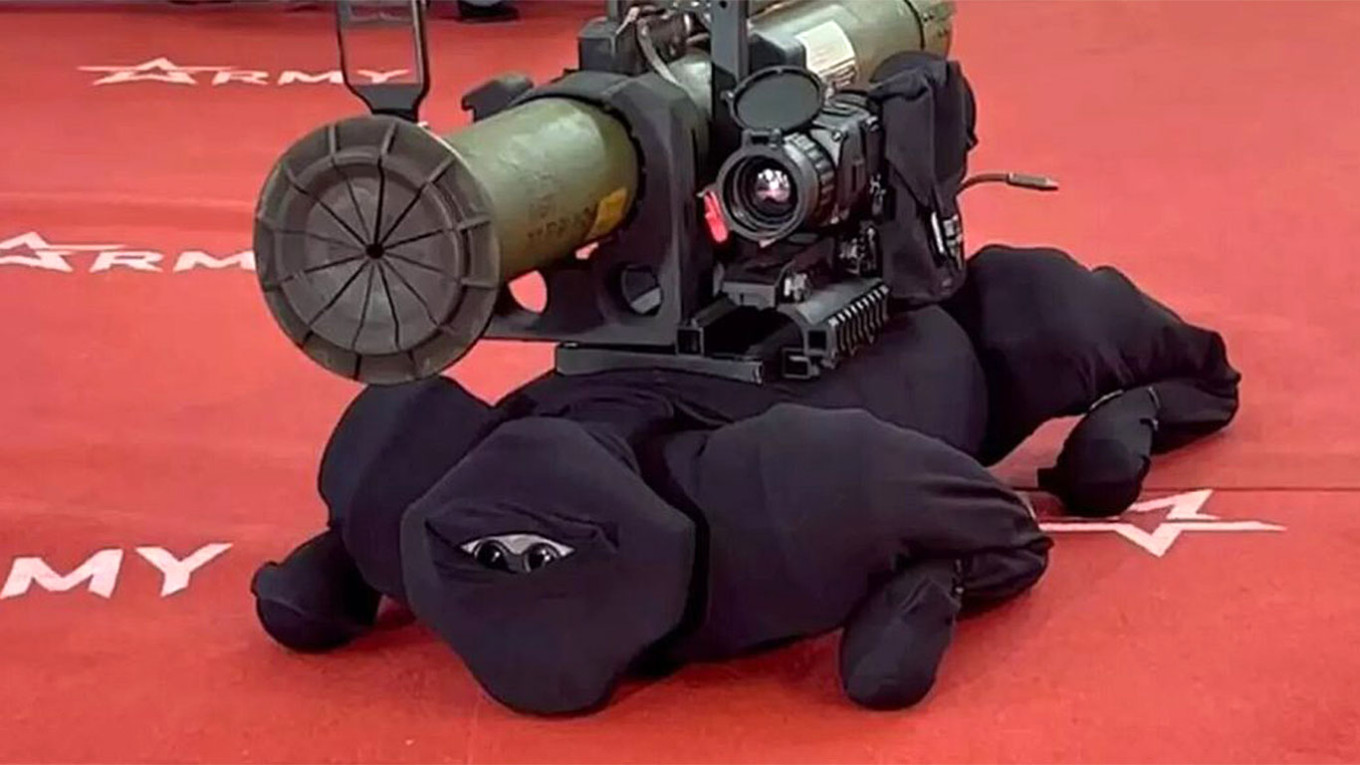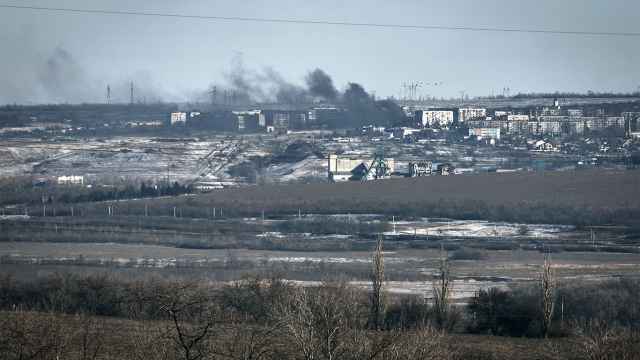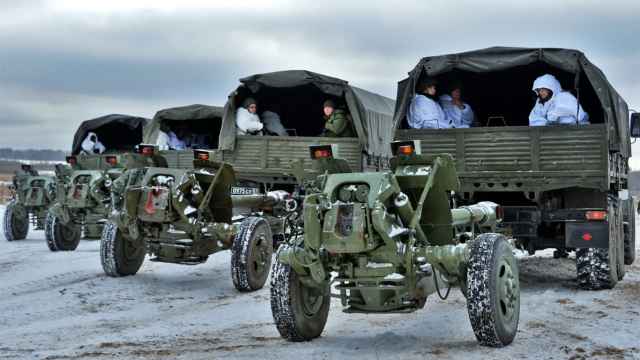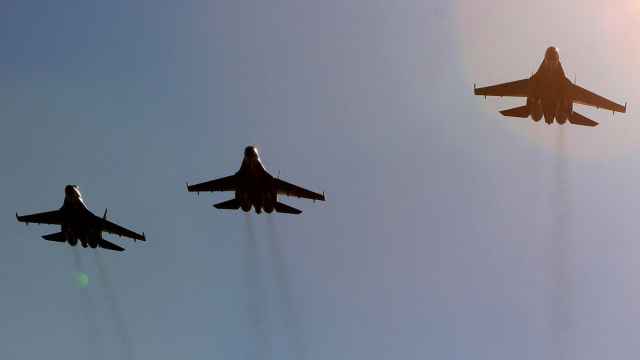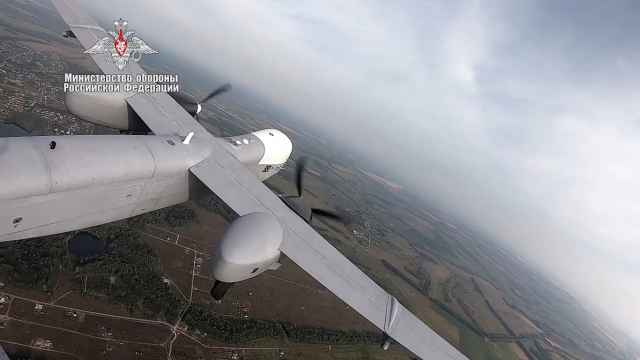A robotic dog equipped with an anti-tank rocket launcher mounted on its back quickly went viral after it was unveiled at Russia’s annual Army-2022 international arms expo Monday.
Just as quickly, investigative outlets found the futuristic device to bear a striking resemblance to a consumer-grade robotic dog available on Chinese online marketplaces.
Dubbed “M-81 complex,” the quadruped was shown walking, lying and spinning in a demonstration published by Russia’s state-run RIA Novosti news agency.
Its Russian developer, a little-known engineering company called Machine Intellect, touted the robotic dog’s ability to carry and fire weapons.
M-81’s military applications also entail target designation, patrolling and security, the company’s spokesperson told RIA Novosti. The robotic dog’s civilian roles include delivering medication, surveying its surroundings and navigating rubble in emergency zones.
The M-81 showed off its moves on the exhibition floor armed with an RPG-26 anti-tank rocket launcher which weighs up to 3 kilograms when loaded and comes with an optical aiming device.
The robotic dog was also disguised in a black cloth coverall, with only the top of its optical sensors peeking through.
The shape and location of those optical sensors, as well as the robot’s overall frame, visually matches that of Go1, a companion bot created by the Chinese startup Unitree Robotics.
The Go1 sells for $2,700 on Unitree Robotics' website and $420 on AliExpress, China’s top online marketplace.
M-81’s developers have not commented on the similarity, which was reported by Russian investigative outlet The Insider as well as the U.S. national security magazine The War Zone.
Instead, Machine Intellect’s spokesperson told RIA Novosti that M-81 resembles a dog because of “bionics — the principles, structures and mechanics characteristic of the animal world.”
A Message from The Moscow Times:
Dear readers,
We are facing unprecedented challenges. Russia's Prosecutor General's Office has designated The Moscow Times as an "undesirable" organization, criminalizing our work and putting our staff at risk of prosecution. This follows our earlier unjust labeling as a "foreign agent."
These actions are direct attempts to silence independent journalism in Russia. The authorities claim our work "discredits the decisions of the Russian leadership." We see things differently: we strive to provide accurate, unbiased reporting on Russia.
We, the journalists of The Moscow Times, refuse to be silenced. But to continue our work, we need your help.
Your support, no matter how small, makes a world of difference. If you can, please support us monthly starting from just $2. It's quick to set up, and every contribution makes a significant impact.
By supporting The Moscow Times, you're defending open, independent journalism in the face of repression. Thank you for standing with us.
Remind me later.


